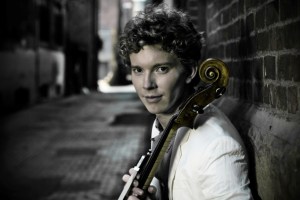This week’s Seattle new music events offer cross-genre flavors at the Crocodile, a world premiere by Timo Andres, and a homecoming for the Westerlies!
Town Music: Town Hall Seattle and Seattle Youth Symphony Orchestras present John Adams’ ‘Shaker Loops’ and original work, commissioned by Town Hall from Timo Andres
Town Music Artistic Director (and Second Inversion’s Artistic Advisor!) Joshua Roman will conduct the Seattle Youth Symphony (current members and alums!) in the Town Music season finale. This talented group of musicians will present the world premiere of a new work by Timo Andres, who “achieves an unhurried grandeur that has rarely been felt in American music since John Adams came on the scene” (The New Yorker). His new work was commissioned by Town Hall and will be a great fit amidst John Adams’ Shaker Loops and Bartok’s Divertimento for Strings.
Second Inversion will present this concert as a LIVE BROADCAST. You can tune in at bit.ly/SI-stream and RSVP to our Facebook Event!
The performance is this Saturday, June 27 at 7:30pm (doors at 6:30pm) at Town Hall Seattle on First Hill.
STG Presents Son Lux and Olga Bell
 Son Lux’s leader is Ryan Lott, who was named “Best New Artist” by NPR’s All Song’s Considered in 2008. Lott “works at the nexus of several rarely-overlapping Venn Diagrams (Pitchfork)” which couldn’t be a better description of what we seek to showcase on Second Inversion. His composition “Beautiful Mechanical,” for yMusic instantly caught our attention and is in frequent rotation on our 24/7 stream. He has also collaborated with a multitude of other prestigious artists including Richard Reed Parry, Chris Thile, Lorde, Beyoncé producer Boots, Sufjan Stevens, Matthew Dear, Busdriver, Vijay Iyer, Nico Muhly and Pulitzer Prize winner Caroline Shaw.
Son Lux’s leader is Ryan Lott, who was named “Best New Artist” by NPR’s All Song’s Considered in 2008. Lott “works at the nexus of several rarely-overlapping Venn Diagrams (Pitchfork)” which couldn’t be a better description of what we seek to showcase on Second Inversion. His composition “Beautiful Mechanical,” for yMusic instantly caught our attention and is in frequent rotation on our 24/7 stream. He has also collaborated with a multitude of other prestigious artists including Richard Reed Parry, Chris Thile, Lorde, Beyoncé producer Boots, Sufjan Stevens, Matthew Dear, Busdriver, Vijay Iyer, Nico Muhly and Pulitzer Prize winner Caroline Shaw.
Son Lux will perform selections from their latest album Bones (released June 23), the premiere release from the newly formed trio, including Guitarist-composer Rafiq Bhatia and drummer Ian Chang.
Olga Bell joins Son Lux for this event. Olga’s elite training as a classical pianist paved way for the pursuit of electronic composition and songwriting. Second Inversion regulars are likely familiar with Bell’s 2014 New Amsterdam release Krai, which is a tribute to edge towns in her birth country of Russia. Olga Bell is also noted for her work with Nothankyou, Charlift, and Dirty Projectors.
The performance is this Saturday, June 27 at 9pm (doors at 8pm) at the Crocodile in Belltown.
The Westerlies: Summer Show at The Royal Room
 The Westerlies (“prevailing winds from the West to the East) are home from another year of Conservatory training in NYC and return to The Royal Room for a special performance of brand new music soon to be recorded on their second album!
The Westerlies (“prevailing winds from the West to the East) are home from another year of Conservatory training in NYC and return to The Royal Room for a special performance of brand new music soon to be recorded on their second album!
This brass quartet composed of Riley Mulherkar, Zubin Hensler, Andy Clausen, and Willem de Koch navigate between American folk music, jazz, classical, and indie rock and have expanded the repertoire by premiering over 40 original brass quartets. Second Inversion hosted them for an in-studio video session back in January and we’re always thrilled to have them back in town.
The Westerlies will be joined by Brooklyn based indie-alt vocalist Julia Easterlin. Vocals. Loops. Drums. Drones. Beatz. The Westerlies and Easterlin – a great combination!
The performance is this Sunday, June 28 at 5pm (doors at 4:30pm) at the Royal Room in Columbia City.









